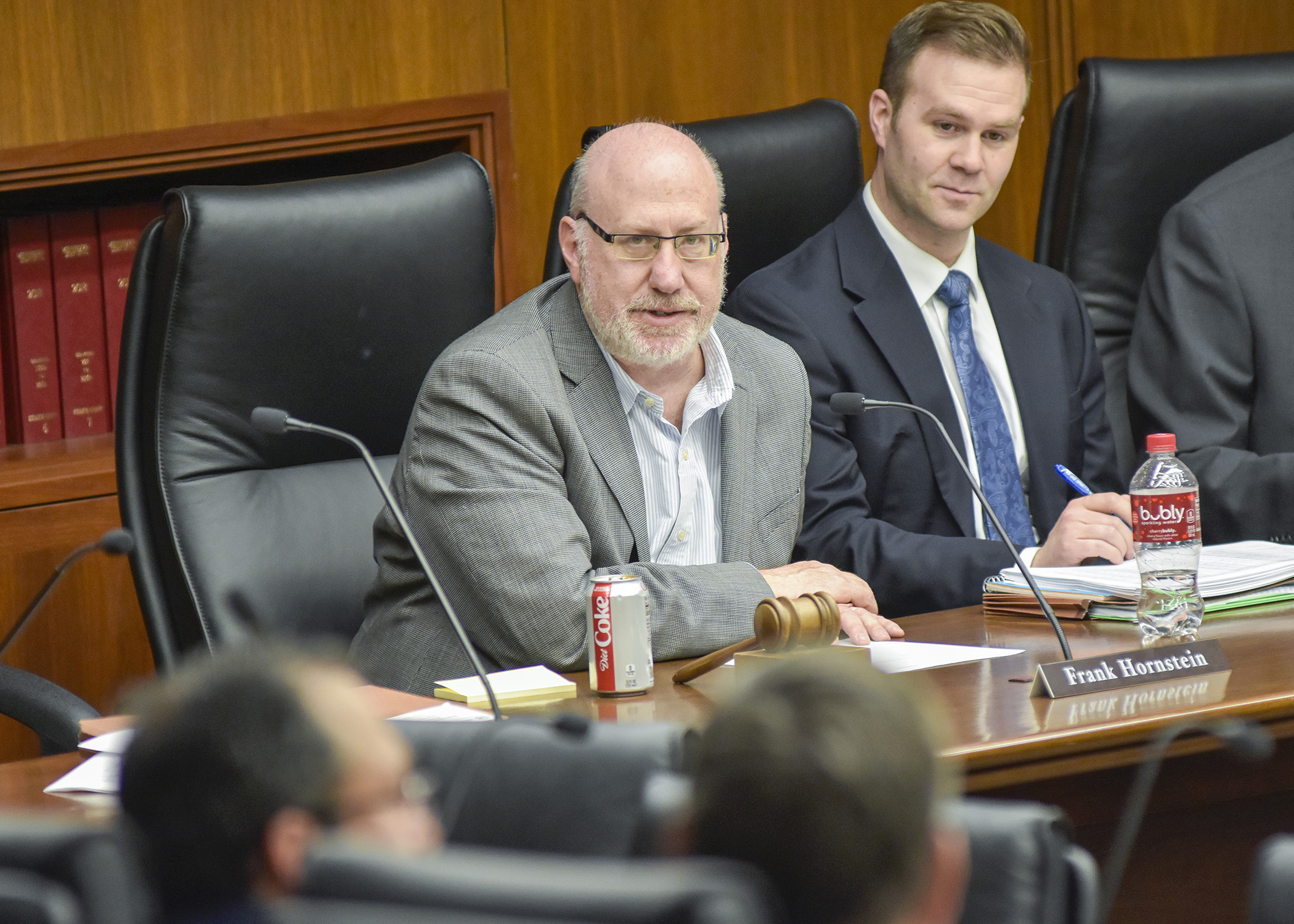No gas tax increase in skinnier omnibus transportation package

The House’s transportation panel on Thursday walked through a compromise omnibus transportation package that, from a House DFL perspective, might seem like no compromise at all. No gas tax increase, no transit-dedicated sales tax, no trunk highway bonding.
Instead of sweeping new investments, it is a proposal that one DFL member called “status quo.”
The slimmer, $6.7 billion proposal “falls well, well short” of meeting the state’s needs, said Rep. Frank Hornstein (DFL-Mpls), who chairs the House Transportation Finance and Policy Division.
Gov. Tim Walz and House DFLers relented in negotiations with Senate Republicans in their push for more than $1 billion in new revenue — through a 20-cent increase in the state’s per-gallon gas tax and a metro area transit-dedicated sales tax — for Minnesota’s roads, bridges and public transit systems.
[MORE See the compromise spreadsheet]
The division walked through the compromise language that is expected to be introduced during a special session — potentially as early as Friday — but no action was taken.
Hornstein expressed disappointment in the lack of large-scale, new investment in the state’s transportation infrastructure, something he and other DFL leaders have said is desperately needed.
“Make no mistake — this is a paltry, lights-on bill,” he said Wednesday.
DFLers have advocated for an increase in dedicated road and bridge funding through an increase in the constitutionally dedicated gas tax. They have also pushed for an increased metro sales tax to boost spending on existing service and adding new routes.
Republicans in the House and Senate, meanwhile, have pushed for the use of existing General Fund dollars to fund additional road and bridge projects — and haven’t been supportive of new transit funding.
Rep. Paul Torkelson (R-Hanska), the Republican lead on the division, said that while the bill may be a piece of lights-on legislation, “the lights are brighter” because of the GOP’s efforts in 2017 that shifted some $450 million in transportation-related tax revenues from the General Fund toward transportation.
“It’s $6 billion — it’s over $6 billion,” Torkelson said. “It’s good money.”
What’s in the bill
The proposal would appropriate just shy of $100 million in new transportation spending over the 2020-21 biennium. It includes $55 million to replace the troubled Minnesota Licensing and Registration System and $13 million in reimbursement to deputy registrars that were hit hard by the problematic rollout of the system in July 2017.
It also includes $50 million for the Corridors of Commerce program, and $23 million in additional proposed funding for Metro Mobility, the metro region’s increasingly stretched transit service for the elderly and people with disabilities.
Also included in the agreement are a number of policy measures; among them are those that would:
- rename various stretches of state highway in memoriam to Minnesotans of note, like former Rep. Tom Rukavina, and those who died in the line of duty;
- allow Minneapolis and Burnsville to adopt ordinances to prohibit engine braking, also known as Jake braking, on specific highways;
- permit a city to establish speed limits on local streets that differ from speed limits provided in state law;
- require signs on Interstate 35 for the Minnesota State Academy for the Deaf and Minnesota State Academy for the Blind;
- amend traffic regulations related to school buses re-entering traffic from a shoulder, right-turn lane or other location used for passenger pick-up or drop-off;
- modify provisions in law related to motor vehicle dealers and vehicle registration, including authorizing dealers to determine vehicle value in registration tax calculation in some circumstances;
- modify exceptions to road weight limits to allow some overweight vehicles transporting unfinished forest products; and
- allow a driver’s license or state ID card holder to add an identifier to the card indicating they have been diagnosed with an autism spectrum disorder or a mental health condition.
Among the notable House provisions that didn’t make the cut under the agreement was the driver’s licenses for all measure. It would have issued driver’s licenses to Minnesota drivers without regard to immigration status.
Related Articles
Search Session Daily
Advanced Search OptionsPriority Dailies
Ways and Means Committee OKs proposed $512 million supplemental budget on party-line vote
By Mike Cook Meeting more needs or fiscal irresponsibility is one way to sum up the differences among the two parties on a supplemental spending package a year after a $72 billion state budg...
Meeting more needs or fiscal irresponsibility is one way to sum up the differences among the two parties on a supplemental spending package a year after a $72 billion state budg...
Minnesota’s projected budget surplus balloons to $3.7 billion, but fiscal pressure still looms
By Rob Hubbard Just as Minnesota has experienced a warmer winter than usual, so has the state’s budget outlook warmed over the past few months.
On Thursday, Minnesota Management and Budget...
Just as Minnesota has experienced a warmer winter than usual, so has the state’s budget outlook warmed over the past few months.
On Thursday, Minnesota Management and Budget...